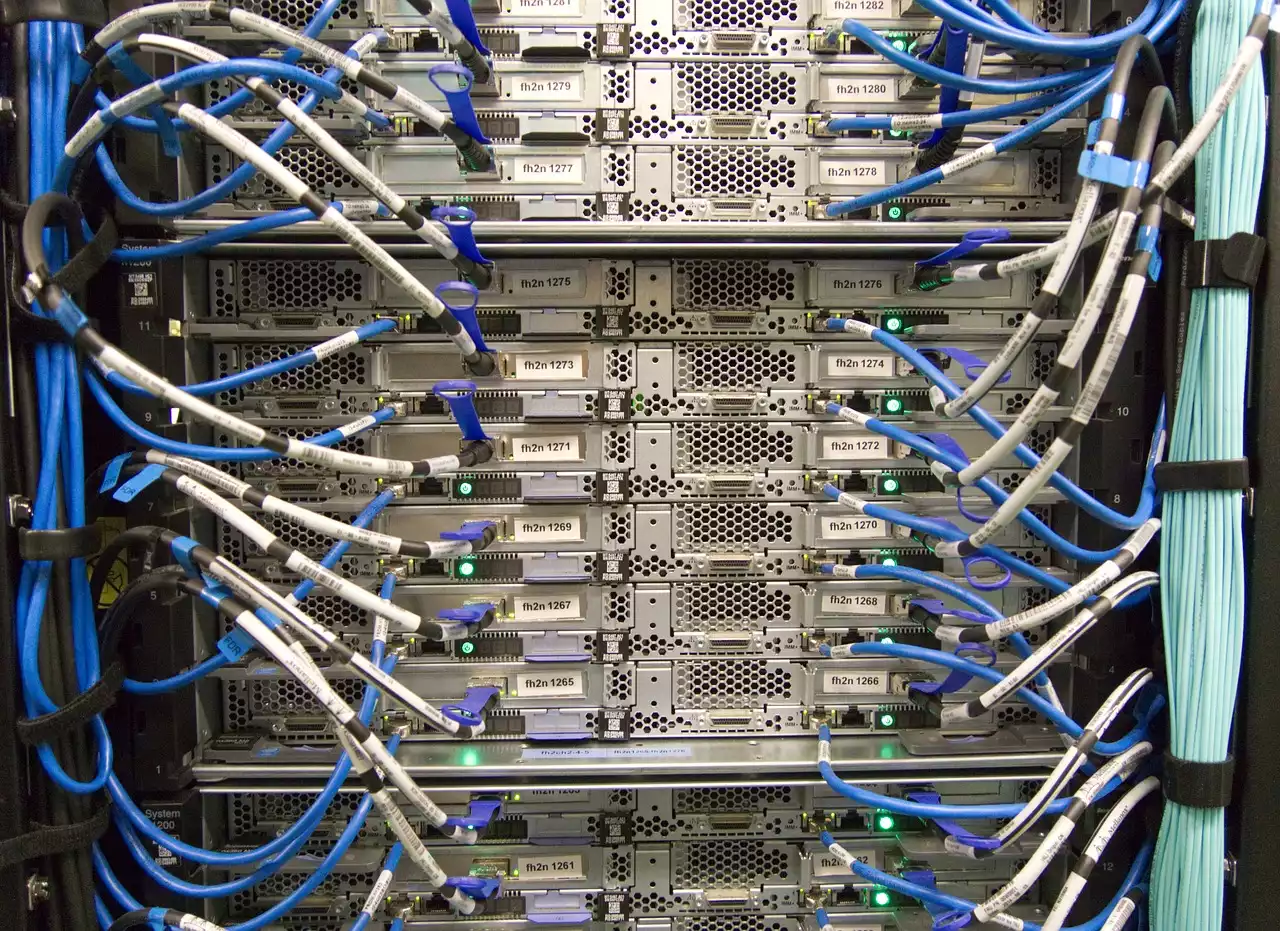What is Dedicated Hosting?
Dedicated hosting is a type of web hosting where you rent an entire server for your website. Unlike shared hosting, where multiple websites share the same server, with dedicated hosting, you have complete control over the server's resources. This means you can customize the server to meet your specific needs, such as choosing the operating system, installing software, and configuring settings.
The server is physically located in a data center, which is a facility designed to house servers and other computer equipment. The data center provides an ideal environment for the server, with features such as temperature control, power backup, and security measures to protect against physical and digital threats.
Dedicated hosting is typically more expensive than shared hosting, as you are paying for the entire server's resources. However, the increased cost comes with benefits such as improved performance, security, and flexibility.
Advantages of Dedicated Hosting
1. Increased Performance: With dedicated hosting, you have exclusive access to the server's resources, which means your website can handle high traffic volumes without slowing down. This is especially important for websites that require a lot of processing power, such as e-commerce sites or media-heavy websites.
2. Improved Security: Dedicated hosting provides a higher level of security than shared hosting. With shared hosting, if one website on the server is compromised, it can potentially affect all other websites on the server. With dedicated hosting, you have complete control over the server's security measures, including firewalls, antivirus software, and security patches.
3. Flexibility: Dedicated hosting provides you with complete control over the server's resources, which means you can customize the server to meet your specific needs. This includes choosing the operating system, installing software, and configuring settings. This level of control allows you to optimize your website's performance and ensure it runs smoothly.
Disadvantages of Dedicated Hosting
1. Higher Cost: Dedicated hosting is typically more expensive than shared hosting due to the exclusive access to the server's resources.
2. Technical Expertise Required: With dedicated hosting, you have complete control over the server's resources, which means you are responsible for managing the server. This requires technical knowledge and expertise, which may be challenging for those without experience.
3. Maintenance and Upgrades: With dedicated hosting, you are responsible for maintaining and upgrading the server. This includes tasks such as updating the operating system, installing security patches, and replacing hardware when necessary.
Who Should Use Dedicated Hosting?
Dedicated hosting is ideal for businesses or websites that require a high level of performance, security, and customization. This includes:
1. E-commerce websites: E-commerce websites require a high level of performance and security to ensure transactions are processed quickly and securely.
2. Media-heavy websites: Websites that contain a lot of media, such as images and videos, require a lot of processing power and bandwidth. Dedicated hosting can ensure these websites load quickly and efficiently.
3. High-traffic websites: Websites that receive a lot of traffic require a lot of processing power and bandwidth to ensure they can handle the volume of visitors.
4.Websites that require customization: Dedicated hosting allows you to customize the server to meet your specific needs, which is ideal for websites that require unique configurations.
Types of Dedicated Hosting
There are two main types of dedicated hosting:
1. Managed Dedicated Hosting: With managed dedicated hosting, the hosting provider manages the server for you. This includes tasks such as maintenance, upgrades, and security. Managed hosting is ideal for those without technical expertise or those who don't have the time to manage the server themselves.
2. Unmanaged Dedicated Hosting: With unmanaged dedicated hosting, you are responsible for managing the server. This includes tasks such as maintenance, upgrades, and security. Unmanaged hosting is ideal for those with technical expertise and the time to manage the server themselves.
How to Choose a Dedicated Hosting Provider
When choosing a dedicated hosting provider, there are several factors to consider:
1. Reliability: Choose a hosting provider with a proven track record of reliability and uptime.
2. Support: Look for a hosting provider with 24/7 support to ensure any issues are resolved quickly.
3. Scalability: Choose a hosting provider that can accommodate your website's growth and handle increased traffic volumes.
4. Security: Look for a hosting provider with robust security measures to ensure your website is protected against digital threats.
5. Price: Consider the cost of dedicated hosting and whether it fits within your budget.
Dedicated Hosting vs. Shared Hosting
Dedicated hosting and shared hosting are two of the most common types of web hosting. The main difference between the two is the level of resources you have access to.
With shared hosting, multiple websites share the same server and its resources. This means your website's performance can be affected by other websites on the server. With dedicated hosting, you have exclusive access to the server's resources, which means your website's performance is not affected by other websites.
Shared hosting is typically less expensive than dedicated hosting, but it comes with limitations in terms of performance, security, and customization.
Dedicated Hosting vs. Cloud Hosting
Cloud hosting is another type of web hosting that has become increasingly popular in recent years. With cloud hosting, your website is hosted on a network of servers rather than a single server. This means your website's resources can be scaled up or down depending on your needs.
The main difference between dedicated hosting and cloud hosting is the level of control you have over the server's resources. With dedicated hosting, you have complete control over the server's resources, while with cloud hosting, you have less control.
Cloud hosting is typically more flexible than dedicated hosting, but it can be more expensive and may not provide the same level of performance.
Setting up a Dedicated Server
Setting up a dedicated server can be a complex process that requires technical knowledge and expertise. Here are the basic steps involved:
1. Choose a hosting provider: Choose a hosting provider that offers dedicated hosting and meets your specific needs.
2. Choose a server: Choose a server that meets your website's requirements in terms of storage, processing power, and bandwidth.
3. Choose an operating system: Choose an operating system, such as Linux or Windows, and install it on the server.
4. Install software: Install any necessary software, such as a web server or database server.
5. Configure settings: Configure the server's settings, such as security measures and optimization settings.
6. Migrate your website: Migrate your website to the new server.










.png?size=50)